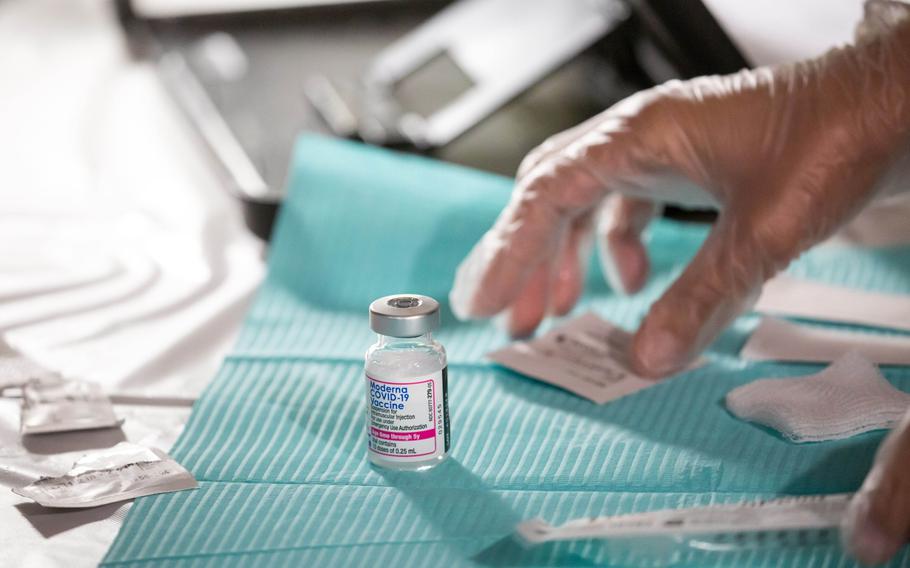
A healthcare worker prepares a dose of the Moderna coronavirus vaccine at the Brooklyn Children’s Museum vaccination site, serving children six months to 5 years old, on June 23. (Michael Nagle/Bloomberg)
Stars and Stripes is making stories on the coronavirus pandemic available free of charge. See more stories here. Sign up for our daily coronavirus newsletter here. Please support our journalism with a subscription.
Moderna's booster shot of its bivalent vaccine sharply increased antibody levels against recent COVID strains when compared to a fourth dose of its original immunization.
People given the bivalent vaccine, mRNA-1273.222, as their fourth shot generated levels of protective antibodies against the BA.4 and BA.5 strains that were five-fold to six-fold higher than those seen in adults given a repeat dose of the original, the Cambridge, Mass.-based company said in a statement. Antibody levels were measured after 28 days in the trial involving more than 500 people, a company spokesperson said.
The Moderna finding is roughly in line with a smaller study from rival vaccine maker Pfizer and its German partner BioNTech. In that study, antibody levels to BA.4 and BA.5 variants were four-fold higher in people over 55 who received the bivalent shot compared to those who received a fourth shot of the original vaccine.
But other studies examining the effects of bivalent boosters generated contrasting results. In October, independent labs at Columbia University and Harvard University reported that bivalent boosters made by Pfizer and Moderna didn't appear to provide much incremental benefit when compared with a fourth dose of the original vaccines, according to studies posted on the preprint server bioRxiv.org.
It's not clear why some studies have produced divergent results.
Moderna said its trial included people ranging in age from 19 to 89. It said the antibody results were consistent in both elderly and younger adults, and that no new safety issues were found.